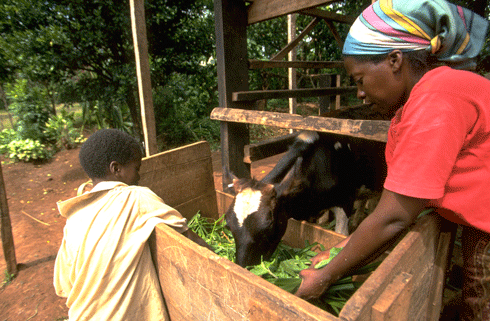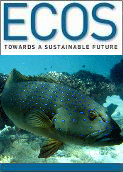
|
Published: 25 June 2012
Call to focus on smallholders at Rio+20
The President of the International Fund for Agricultural Development (IFAD), Kanayo F. Nwanze, has urged the Rio+20 conference to put the world’s 500 million smallholder farms at the heart of poverty reduction and food security plans
IFAD is an international financial institution and a UN agency comprised of 168 member nations. Since 1978, IFAD has invested almost US$14 billion in grants and low-interest loans to developing countries aimed at enabling poor people to grow and sell more food, increase their incomes and empower them to break out of poverty and determine the direction of their own lives.
‘There is no magic bullet that will eliminate poverty and guarantee sustainable food security overnight,’ says Mr Nwanze.
‘But at IFAD, we see the hope of a sustainable future embodied in rural people’s perseverance and endurance to overcome challenges and thrive doing so. More specifically, it is personified in rural women as they are the nurturers and educators of this generation and the next.’
Twenty years after the Rio Earth Summit in 1992, world leaders convened at Rio+20 (20–22 June, 2012) to discuss how to shape a sustainable future for the planet in the face of new and daunting challenges.
While over the past twenty years global wealth has increased, there has also been a rise in the number of hungry people. Climate change, population growth and constrained natural resource – as well as competition for those limited resources – represent huge challenges for food security.
‘If we are to be truly sustainable, then we must lift the heavy burden off the backs of rural women and men and replace it with equal access to agricultural resources and climate-smart tools to build their resilience,’ says Mr Nwanze.
As the single largest employer in the world, agriculture remains a critical sector for developing country economies. In most countries, agriculture accounts for more than 60 per cent of employment.
‘At IFAD, we believe that smallholder farmers are the anchor of sustainable development as they are the primary domestic private sector investor in rural areas,’ says Mr Nwanze.
‘Private sector investment, both domestic and foreign, can be the critical ingredient in achieving sustainable agricultural development and food security. But it has to be clearly directed toward enabling farmers to increase their productivity and incomes.’
‘When you improve small farmers’ ability to feed themselves, you also improve their ability to feed others.’
Also at the Rio+20 Conference, IFAD and the Bill & Melinda Gates Foundation announced an agreement to build on the partnership between the two organizations through increased funding of agricultural research and development in the poorest regions of the world.
Source: International Fund for Agricultural Development




